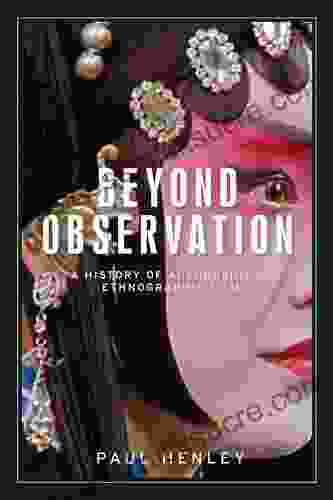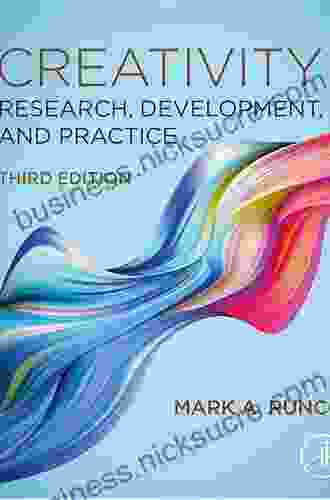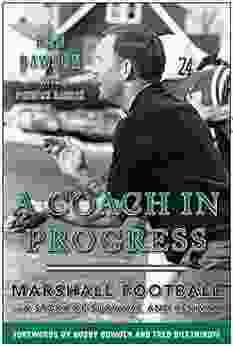The History of Authorship in Ethnographic Film: Anthropology, Creative Practice, and the Politics of Representation


Ethnographic filmmaking is a complex and multifaceted practice that has its roots in both anthropology and the creative arts. As such, it is a field that has been constantly evolving, with new technologies and approaches emerging all the time. One of the most important developments in ethnographic filmmaking in recent years has been the increasing emphasis on the role of the filmmaker as author. This shift has led to a number of important debates about the ethics of ethnographic filmmaking, the role of the filmmaker in the production of knowledge, and the relationship between ethnography and art.
4 out of 5
| Language | : | English |
| File size | : | 5144 KB |
| Text-to-Speech | : | Enabled |
| Screen Reader | : | Supported |
| Enhanced typesetting | : | Enabled |
| Word Wise | : | Enabled |
| Print length | : | 763 pages |
The Early Days of Ethnographic Film
The early days of ethnographic filmmaking were marked by a strong emphasis on objectivity and scientific detachment. Filmmakers sought to document the lives of other cultures as accurately as possible, and they often used their films to make generalizable claims about human behavior. However, this approach was soon criticized for being too simplistic and for ignoring the complex relationship between the filmmaker and the people they were filming.
In the 1960s and 1970s, a new generation of ethnographic filmmakers emerged who began to challenge the traditional conventions of the field. These filmmakers, such as Jean Rouch and Timothy Asch, argued that it was impossible to be truly objective in ethnographic filmmaking, and that the filmmaker's own subjectivity was an important part of the filmmaking process. They also began to experiment with new forms of ethnographic filmmaking, such as participant observation and reflexivity.
The Rise of the Author
In the 1980s and 1990s, the role of the filmmaker as author became increasingly important in ethnographic filmmaking. This shift was due in part to the rise of new technologies, such as video and digital editing, which made it easier for filmmakers to create more personal and expressive films. It was also due to a growing awareness of the importance of the filmmaker's own subjectivity in the production of knowledge.
As ethnographic filmmakers began to embrace their role as authors, they also began to experiment with new ways of representing their subjects. They began to use more subjective and creative techniques, such as personal voiceover and poetic imagery. They also began to work more closely with their subjects, and to give them a greater voice in the filmmaking process.
The Politics of Representation
The increasing emphasis on the role of the filmmaker as author in ethnographic filmmaking has also raised a number of important questions about the politics of representation. Who has the right to tell the stories of other cultures? How can filmmakers avoid exoticizing or romanticizing their subjects? How can they ensure that their films are respectful and culturally sensitive?
These are complex questions that have no easy answers. However, they are important questions to ask, as they go to the heart of the relationship between ethnography and art. Ethnographic filmmaking is a powerful tool that can be used to promote understanding and empathy between different cultures. However, it is also a tool that can be used to perpetuate stereotypes and to exploit the people it purports to represent.
The history of authorship in ethnographic film is a complex and ever-evolving one. As the field continues to develop, it is likely that we will see even more new and innovative approaches to ethnographic filmmaking. However, one thing is for sure: the role of the filmmaker as author will continue to be a central issue in the debate about the ethics and politics of ethnographic filmmaking.
References
- Asch, T. (1994). The anthropology of film. Cambridge: Cambridge University Press.
- Banks, M. (2001). Visual methods in social research. London: Sage.
- Ruby, J. (2000). Picturing culture: Explorations in film and anthropology. Chicago: University of Chicago Press.
- Stoller, P. (1992). The cinematic anthropology. Madison: University of Wisconsin Press.
4 out of 5
| Language | : | English |
| File size | : | 5144 KB |
| Text-to-Speech | : | Enabled |
| Screen Reader | : | Supported |
| Enhanced typesetting | : | Enabled |
| Word Wise | : | Enabled |
| Print length | : | 763 pages |
Do you want to contribute by writing guest posts on this blog?
Please contact us and send us a resume of previous articles that you have written.
 Fiction
Fiction Non Fiction
Non Fiction Romance
Romance Mystery
Mystery Thriller
Thriller SciFi
SciFi Fantasy
Fantasy Horror
Horror Biography
Biography Selfhelp
Selfhelp Business
Business History
History Classics
Classics Poetry
Poetry Childrens
Childrens Young Adult
Young Adult Educational
Educational Cooking
Cooking Travel
Travel Lifestyle
Lifestyle Spirituality
Spirituality Health
Health Fitness
Fitness Technology
Technology Science
Science Arts
Arts Crafts
Crafts DIY
DIY Gardening
Gardening Petcare
Petcare Ronald D Siegel
Ronald D Siegel John Vince
John Vince Brad Edmondson
Brad Edmondson Horace G Hutchinson
Horace G Hutchinson Doug Good Feather
Doug Good Feather Paul Levy
Paul Levy Warren F Kimball
Warren F Kimball Rainbow Rowell
Rainbow Rowell Scott A Small
Scott A Small Ben Hogan
Ben Hogan Joanne Webb
Joanne Webb Gregory Hodges
Gregory Hodges William Henry
William Henry Simone Elkeles
Simone Elkeles Simon Nasht
Simon Nasht Ryan Stramrood
Ryan Stramrood Catherine Tucker
Catherine Tucker Eric Smith
Eric Smith Arthur Beiser
Arthur Beiser Jeremy L Holloway
Jeremy L Holloway Seth Stein
Seth Stein Duncan Wells
Duncan Wells Scott Cookman
Scott Cookman Samira Ahmed
Samira Ahmed Michael Mccarthy
Michael Mccarthy Rachel Blunk
Rachel Blunk Pat Mullaly
Pat Mullaly Daniel Mccain
Daniel Mccain Stuart Ritchie
Stuart Ritchie Charlie Craven
Charlie Craven Benny Lewis
Benny Lewis Jeremy Wade
Jeremy Wade Gail Reichlin
Gail Reichlin Cameran Eubanks Wimberly
Cameran Eubanks Wimberly Brian Cole
Brian Cole Jessica Rhodes
Jessica Rhodes Ovidiu Calin
Ovidiu Calin Elizabeth King
Elizabeth King Sadie Keller
Sadie Keller Stephen Jay Gould
Stephen Jay Gould Bill Chambers
Bill Chambers Richard L Currier
Richard L Currier Pittacus Lore
Pittacus Lore Ethan Sawyer
Ethan Sawyer Jessica Grogan
Jessica Grogan Jesper Juul
Jesper Juul Charles Bowden
Charles Bowden Dave Seminara
Dave Seminara Barack Obama
Barack Obama S Frederick Starr
S Frederick Starr Laura Navarre
Laura Navarre Hayley Dimarco
Hayley Dimarco Norman Link
Norman Link Chris Scott
Chris Scott Milli Hill
Milli Hill Pat Falvey
Pat Falvey Brian J Lang
Brian J Lang Jeffery Pfeffer
Jeffery Pfeffer Thomas Henry Huxley
Thomas Henry Huxley Edwin Monk
Edwin Monk Irene Mchenry
Irene Mchenry Jemma Foster
Jemma Foster Robert K Yin
Robert K Yin Mark A Runco
Mark A Runco Walter Martin
Walter Martin Jim Parks
Jim Parks Mercedes Lackey
Mercedes Lackey Brad Walker
Brad Walker Gabriel J Connor
Gabriel J Connor Kathy Kochan
Kathy Kochan Chris Hart
Chris Hart Mark Powell
Mark Powell Stefan Burban
Stefan Burban Janice Mcdonald
Janice Mcdonald Joe Cermele
Joe Cermele Michael Grant
Michael Grant Karen Gravelle
Karen Gravelle Spanked Teen
Spanked Teen Rob Bignell
Rob Bignell Roberta Steinberg
Roberta Steinberg Susan A Milstein
Susan A Milstein Chris Bird
Chris Bird Toby Neighbors
Toby Neighbors Kathleen Cushman
Kathleen Cushman Chris Bonington
Chris Bonington Forrest Griffin
Forrest Griffin Martin E P Seligman
Martin E P Seligman Roger Wiens
Roger Wiens Jon Patrick Hatcher
Jon Patrick Hatcher Cliff Jacobson
Cliff Jacobson Mary E Pearson
Mary E Pearson Kathy A Zahler
Kathy A Zahler Sean Gordon Murphy
Sean Gordon Murphy Eric S Raymond
Eric S Raymond Lsatmax Lsat Prep
Lsatmax Lsat Prep Erving Goffman
Erving Goffman Susan Radulovacki
Susan Radulovacki Ray Jarrett
Ray Jarrett Sophia Glock
Sophia Glock William Egelman
William Egelman Scott Hartshorn
Scott Hartshorn Hanna Seymour
Hanna Seymour Steven Kotler
Steven Kotler Jim Gray
Jim Gray Brian Noyes
Brian Noyes Rachel Cathan
Rachel Cathan Tony Kemerly
Tony Kemerly Jada Fisher
Jada Fisher Paul Chapman
Paul Chapman Sarah Shephard
Sarah Shephard Tiffany D Jackson
Tiffany D Jackson Meg Meeker
Meg Meeker Bradley G Stevens
Bradley G Stevens Isolina Ricci
Isolina Ricci Gabor Szauer
Gabor Szauer Leigh Montville
Leigh Montville Brendan Noble
Brendan Noble Rojan Robotham
Rojan Robotham Gong Chen
Gong Chen Nancy Springer
Nancy Springer Charles E Schaefer
Charles E Schaefer Belinda Norton
Belinda Norton Pass Your Class
Pass Your Class Drew Monkman
Drew Monkman Malcolm Russell
Malcolm Russell Robert Heidler
Robert Heidler R M Romero
R M Romero Maggie Tokuda Hall
Maggie Tokuda Hall James R Andrews
James R Andrews 11th Edition Kindle Edition
11th Edition Kindle Edition Jean Gebser
Jean Gebser Ascencia
Ascencia Briana Wiles
Briana Wiles Hernan Chousa
Hernan Chousa Jake Maloney
Jake Maloney Isaac Asimov
Isaac Asimov Richard Hartley
Richard Hartley Frank Morin
Frank Morin Tom Gilmore
Tom Gilmore Lama Zopa Rinpoche
Lama Zopa Rinpoche Mike Mattesi
Mike Mattesi Seth Fletcher
Seth Fletcher Darren Byler
Darren Byler Mark Beaumont
Mark Beaumont Karim Soliman
Karim Soliman Robert H Pantell
Robert H Pantell Steve Sheward
Steve Sheward John Lawson
John Lawson Mark Bishop
Mark Bishop Jakub Kalinowski
Jakub Kalinowski Karin Cadwell
Karin Cadwell Ashley Christensen
Ashley Christensen Laurie Katz
Laurie Katz Gavin Chappell
Gavin Chappell Mike Carter
Mike Carter Ralph H Hruban
Ralph H Hruban Gerry Cheevers
Gerry Cheevers Audrey Sutherland
Audrey Sutherland Sarah Burton
Sarah Burton Inc Barcharts
Inc Barcharts Nikita Gill
Nikita Gill Sarah Leah Chase
Sarah Leah Chase Michelle Medlock Adams
Michelle Medlock Adams Jennifer Love
Jennifer Love Hunter Allen
Hunter Allen J P Moreland
J P Moreland Leigh East
Leigh East John T Moore
John T Moore Fred Zeglin
Fred Zeglin Paul Henley
Paul Henley Itzhak Bentov
Itzhak Bentov Anni Daulter
Anni Daulter Ricardo D Palacios
Ricardo D Palacios Arthur Bovino
Arthur Bovino Isaac Newton
Isaac Newton Rosalyn Hoffman
Rosalyn Hoffman Eileen Pollack
Eileen Pollack Donald E Brown
Donald E Brown Laura Hulleman
Laura Hulleman Joel Spring
Joel Spring Drew Harris
Drew Harris Kurt Koontz
Kurt Koontz Alexander Boxer
Alexander Boxer Robert R Harr
Robert R Harr Stephanie Muntone
Stephanie Muntone Camieyes Inc
Camieyes Inc Douglas Fisher
Douglas Fisher Scott Draper
Scott Draper Emily M Leonard
Emily M Leonard Courtney Loquasto
Courtney Loquasto Margarita Engle
Margarita Engle Dawn Hogue
Dawn Hogue 005 Edition Kindle Edition
005 Edition Kindle Edition Leon James
Leon James Gary Paulsen
Gary Paulsen Match
Match Mark Jackson
Mark Jackson Julia Ann Clayton
Julia Ann Clayton Greg Nelson
Greg Nelson Barry H Lopez
Barry H Lopez Lynn Clark
Lynn Clark Dan Jenkins
Dan Jenkins Hsiang Shui Chen
Hsiang Shui Chen Grace Stockholm
Grace Stockholm Stan Skrabut
Stan Skrabut Marie Bigelow
Marie Bigelow Arthur F Coombs Iii
Arthur F Coombs Iii Linda Carter
Linda Carter Michael R Ange
Michael R Ange Louise Davidson
Louise Davidson Drew Neil
Drew Neil Kindle Interactive Edition
Kindle Interactive Edition Dawn Davenport
Dawn Davenport Eben Weiss
Eben Weiss Pat Anvil
Pat Anvil Sara Hopkinson
Sara Hopkinson Kate Mosse
Kate Mosse Jamie Ward
Jamie Ward Dan Benardot
Dan Benardot Larry Krieger
Larry Krieger Michael Strevens
Michael Strevens Bradford Angier
Bradford Angier Mary Ann Ochota
Mary Ann Ochota Cornelia Pelzer Elwood
Cornelia Pelzer Elwood Robert E Moyer
Robert E Moyer Manveen Kaur
Manveen Kaur Lisa Damour Ph D
Lisa Damour Ph D Thomas Teselli
Thomas Teselli Bob Litwin
Bob Litwin Ashley Rhodes Courter
Ashley Rhodes Courter Gareth Southgate
Gareth Southgate Kate Gruenwald Pfeifer
Kate Gruenwald Pfeifer P T Shank
P T Shank Doreen Lenz Holte
Doreen Lenz Holte Chris Algieri
Chris Algieri Yvon Chouinard
Yvon Chouinard Kirkham Ross
Kirkham Ross Denny Krahe
Denny Krahe Swami Vivekananda
Swami Vivekananda Rick Curtis
Rick Curtis Martin Shaw
Martin Shaw Crystal Marie Fleming
Crystal Marie Fleming Thomas Kinkade
Thomas Kinkade Eric J Wittenberg
Eric J Wittenberg Claire Hartfield
Claire Hartfield William L Briggs
William L Briggs Dave King
Dave King Noelle Stevenson
Noelle Stevenson Thomas Berry
Thomas Berry Hans Paetz Gen Schieck
Hans Paetz Gen Schieck Jennifer Grouling Cover
Jennifer Grouling Cover Arthur Staple
Arthur Staple D A Saia
D A Saia Scott Morrison
Scott Morrison Christine Conners
Christine Conners Michel Boivin
Michel Boivin Huntley Fitzpatrick
Huntley Fitzpatrick Ray Mears
Ray Mears Mark Zegarelli
Mark Zegarelli Stacy Lynn Harp
Stacy Lynn Harp Joseph A Gallian
Joseph A Gallian Elizabeth E Wein
Elizabeth E Wein Randy Kadish
Randy Kadish Red Dawson
Red Dawson Lore Cottone
Lore Cottone Peggie Hall
Peggie Hall Becky Goddard Hill
Becky Goddard Hill Dana Frank
Dana Frank Karen M Mcmanus
Karen M Mcmanus Daniel Mersey
Daniel Mersey Al Sweigart
Al Sweigart E Digby Baltzell
E Digby Baltzell Michael Tlanusta Garrett
Michael Tlanusta Garrett Marcia K Anderson
Marcia K Anderson Dustin Lynx
Dustin Lynx Jeff Seidel
Jeff Seidel Marlin Bree
Marlin Bree Nadine Slavinski
Nadine Slavinski Derek Prince
Derek Prince Lex Luger
Lex Luger Michael Phelps
Michael Phelps John Treacher
John Treacher Tom Holland
Tom Holland Elizabeth Parker
Elizabeth Parker Els Van Geyte
Els Van Geyte Martin Hall
Martin Hall Gerry Donohue
Gerry Donohue Bret Pettichord
Bret Pettichord Rachael Lippincott
Rachael Lippincott Mark Rosenman
Mark Rosenman Harville Hendrix
Harville Hendrix Hussein A Abbass
Hussein A Abbass Beth Shaw
Beth Shaw Penny Simkin
Penny Simkin Kami Garcia
Kami Garcia Kay Lynn Wilson
Kay Lynn Wilson Jamie Andrews
Jamie Andrews N Katherine Hayles
N Katherine Hayles Isaiah Helekunihi Walker
Isaiah Helekunihi Walker Mito Bessalel
Mito Bessalel David Nicholls
David Nicholls Robin Theiss
Robin Theiss Michael Crichton
Michael Crichton Dr Monique Thompson Dha Lpc
Dr Monique Thompson Dha Lpc Stuart Shanker
Stuart Shanker Lance Gettler
Lance Gettler Auriane Desombre
Auriane Desombre Robert W Cohen
Robert W Cohen Christia Spears Brown
Christia Spears Brown Sharleen Woods
Sharleen Woods Stephanie Jeanette Bradley
Stephanie Jeanette Bradley K E Ganshert
K E Ganshert Leona Hendrix
Leona Hendrix Jenny Hall
Jenny Hall E J R David
E J R David Mizuho Kusanagi
Mizuho Kusanagi Nancy Johnson
Nancy Johnson Christine Stephenson
Christine Stephenson Paul M Sutter
Paul M Sutter Jennifer Comeaux
Jennifer Comeaux Jim Fergus
Jim Fergus Nsca National Strength Conditioning Association
Nsca National Strength Conditioning Association Lechna Baram
Lechna Baram Katie Shaw
Katie Shaw James Poskett
James Poskett Gillian Hutchinson
Gillian Hutchinson John L Crassidis
John L Crassidis Arun Jagannathan
Arun Jagannathan Sarah Allen
Sarah Allen Eliza Reid
Eliza Reid Kathy Charner
Kathy Charner Roz Maclean
Roz Maclean Dr Terry Zachary
Dr Terry Zachary Rae Yang
Rae Yang Karl F Kuhn
Karl F Kuhn Cal Peternell
Cal Peternell Matt Kalman
Matt Kalman Wayne Teasdale
Wayne Teasdale Lucy Coleman
Lucy Coleman Patrick M Andendall
Patrick M Andendall Nichola Luther
Nichola Luther Karyn Siegel Maier
Karyn Siegel Maier Kerry Keene
Kerry Keene Harvard Business Review
Harvard Business Review Lynelle Schneeberg
Lynelle Schneeberg Benny A Wit
Benny A Wit Stefan Klein
Stefan Klein David Hatcher Childress
David Hatcher Childress The College Board
The College Board Ruth Ehrhardt
Ruth Ehrhardt Susan David
Susan David Lisa Cordeiro
Lisa Cordeiro Elaine Howard Ecklund
Elaine Howard Ecklund Bryce M Towsley
Bryce M Towsley David Kinch
David Kinch Nigel Latta
Nigel Latta Nicholas Marsh
Nicholas Marsh John Miller
John Miller Don Cherry
Don Cherry Richard Miller Adi
Richard Miller Adi Lindsey Bliss
Lindsey Bliss Sparknotes
Sparknotes Paul Mcghee
Paul Mcghee Charlotte Browne
Charlotte Browne David Bodanis
David Bodanis Vijay Vad
Vijay Vad Tina Olton
Tina Olton Henry Petroski
Henry Petroski Lorraine Allman
Lorraine Allman Arthur Bochner
Arthur Bochner Charlie Portlock
Charlie Portlock Jamie James
Jamie James Stuart Clark
Stuart Clark Isle Osaki
Isle Osaki Ingrid Kohn
Ingrid Kohn Benjamin Alire Saenz
Benjamin Alire Saenz Holly Jackson
Holly Jackson Rob Rachowiecki
Rob Rachowiecki W Michael Kelley
W Michael Kelley Ash Fortis
Ash Fortis Darren Palmer
Darren Palmer Aryeh Kaplan
Aryeh Kaplan Jeff Galloway
Jeff Galloway Colin Allen
Colin Allen Skyhorse Publishing
Skyhorse Publishing Tori Bortman
Tori Bortman Kenny Ranen
Kenny Ranen Graham Bowley
Graham Bowley Katie Banks
Katie Banks Prem Carnot
Prem Carnot Jason Hanson
Jason Hanson John H Cunningham
John H Cunningham Rod Heikell
Rod Heikell Jessica Mccrory Calarco
Jessica Mccrory Calarco Pat Dooley
Pat Dooley Deborah Jiang Stein
Deborah Jiang Stein Sharon L Lohr
Sharon L Lohr Aaron Linsdau
Aaron Linsdau Keith Bateman
Keith Bateman Clifford A Pickover
Clifford A Pickover Kirstie Mclellan Day
Kirstie Mclellan Day Be Learning
Be Learning Zapheria Bell
Zapheria Bell Arthur Scott Bailey
Arthur Scott Bailey Kimberly Eldredge
Kimberly Eldredge Ursula K Le Guin
Ursula K Le Guin Hazrat Inayat Khan
Hazrat Inayat Khan Arthur Benjamin
Arthur Benjamin Kindle Edition
Kindle Edition Thomas J Sims
Thomas J Sims The Secret Cyclist
The Secret Cyclist Joyce Goldstein
Joyce Goldstein Deborah Tannen
Deborah Tannen Judy Bartkowiak
Judy Bartkowiak Mariolina Ceriotti Migliarese
Mariolina Ceriotti Migliarese Lisa Taddeo
Lisa Taddeo Arturo Escobar
Arturo Escobar Braeden Baade
Braeden Baade T Ralph Turner
T Ralph Turner Simon Singh
Simon Singh Lynn Arave
Lynn Arave Echo Heron
Echo Heron William G Tierney
William G Tierney Josh Sundquist
Josh Sundquist Pamparam Kids Books
Pamparam Kids Books Pete Peterson
Pete Peterson Milo Kemp
Milo Kemp Stephen J Wright
Stephen J Wright David Dibenedetto
David Dibenedetto Whitney Holcombe
Whitney Holcombe Jay Gitomer
Jay Gitomer Brandi Dion
Brandi Dion L M Montgomery
L M Montgomery Brittney Wilson
Brittney Wilson Kathie Lee Gifford
Kathie Lee Gifford Tracy Zager
Tracy Zager Michael Angelo Costa
Michael Angelo Costa Asato Asato
Asato Asato Mike Acker
Mike Acker Peter Haining
Peter Haining Brett Topel
Brett Topel Kenneth Hayes
Kenneth Hayes Susan J Fisher
Susan J Fisher Justina Ireland
Justina Ireland R Michael Shaft
R Michael Shaft Lisa Crayford
Lisa Crayford Thomas C Tabor
Thomas C Tabor Hrishikesh Joshi
Hrishikesh Joshi Edith Pattou
Edith Pattou Mike Rohde
Mike Rohde Rika Lukac
Rika Lukac Kate Gladdin
Kate Gladdin Cassandra Vieten
Cassandra Vieten Kris Wilder
Kris Wilder Logan Duvall
Logan Duvall Richard G Lomax
Richard G Lomax Nir Barzilai
Nir Barzilai Izzy Judd
Izzy Judd Julie Hall
Julie Hall Nystce Exam Secrets Test Prep Team
Nystce Exam Secrets Test Prep Team Ed Parker
Ed Parker Douglas Adams
Douglas Adams Marc Macyoung
Marc Macyoung Mistletoe Christmas Collection
Mistletoe Christmas Collection Stefan Ecks
Stefan Ecks Payal Khurana
Payal Khurana Lisa A Alzo
Lisa A Alzo Beth Bartolini Salimbeni
Beth Bartolini Salimbeni Carolyn Nones Vazquez
Carolyn Nones Vazquez Braun Anthony
Braun Anthony Sofia Price
Sofia Price Bridget Bishop
Bridget Bishop James Lawson
James Lawson Jean Haner
Jean Haner Jessica Seinfeld
Jessica Seinfeld Elaine Menger
Elaine Menger Elliot Davis
Elliot Davis George Sandford
George Sandford Talk In Italian
Talk In Italian Gene Kugach
Gene Kugach Richard F Larkin
Richard F Larkin Peter Goos
Peter Goos Db King
Db King John Small
John Small Brian Johnson
Brian Johnson Philip Pullman
Philip Pullman Jacqueline Melvin
Jacqueline Melvin Asanaro
Asanaro Conrad Bauer
Conrad Bauer Paola Roig
Paola Roig Erik Weihenmayer
Erik Weihenmayer T C Edge
T C Edge Jim Hartnett Pga
Jim Hartnett Pga Gerald Pruett
Gerald Pruett Eighth Edition Kindle Edition
Eighth Edition Kindle Edition Louis Berney
Louis Berney Art Smith
Art Smith Howard Burton
Howard Burton Lauren Sullivan
Lauren Sullivan Richard Jefferies
Richard Jefferies Regina Leeds
Regina Leeds Michael J Steele
Michael J Steele Joanne Rodrigues
Joanne Rodrigues Zita Grant
Zita Grant Ransom Riggs
Ransom Riggs Ben Romans
Ben Romans
Light bulbAdvertise smarter! Our strategic ad space ensures maximum exposure. Reserve your spot today!
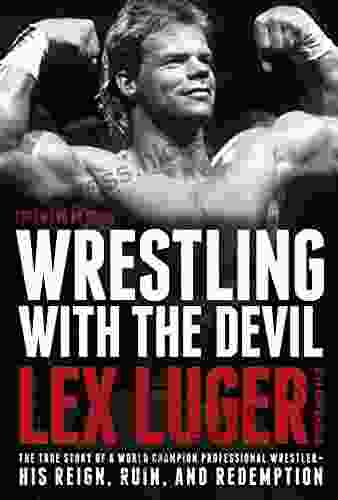
 Curtis StewartThe True Story of World Champion Professional Wrestler: His Reign, Ruin, and...
Curtis StewartThe True Story of World Champion Professional Wrestler: His Reign, Ruin, and... Adam HayesFollow ·10.3k
Adam HayesFollow ·10.3k Chuck MitchellFollow ·15.6k
Chuck MitchellFollow ·15.6k Jesus MitchellFollow ·16.2k
Jesus MitchellFollow ·16.2k Brody PowellFollow ·8.9k
Brody PowellFollow ·8.9k Glen PowellFollow ·5.6k
Glen PowellFollow ·5.6k Zadie SmithFollow ·13.1k
Zadie SmithFollow ·13.1k Jamison CoxFollow ·3.6k
Jamison CoxFollow ·3.6k Anton FosterFollow ·14.2k
Anton FosterFollow ·14.2k

 Braden Ward
Braden Ward125 Recipes to Embark on a Culinary Journey of Virtue and...
Embark on a culinary...

 Benji Powell
Benji PowellItalian Grammar for Beginners: Textbook and Workbook...
Are you interested in...
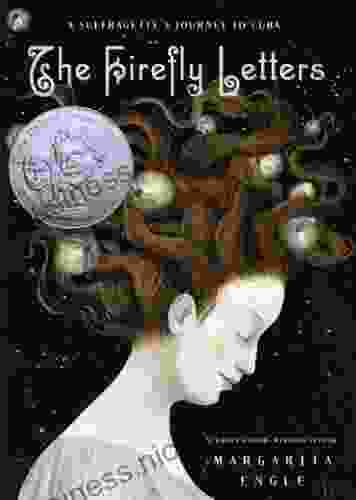
 Joseph Foster
Joseph FosterThe Suffragette Journey to Cuba: A Long and Winding Road...
The suffragette...
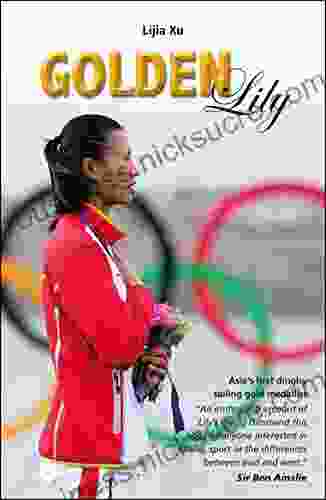
 Dustin Richardson
Dustin RichardsonAsia First Dinghy Sailing Gold Medallist Making Waves
Keerati Bualong is a Thai sailor who made...
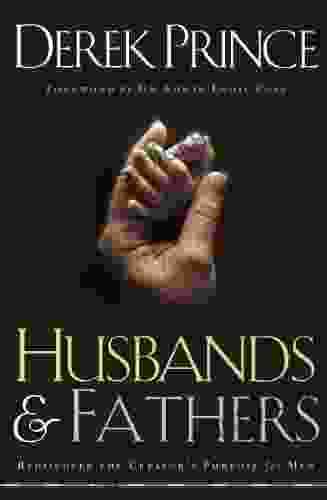
 Aleksandr Pushkin
Aleksandr PushkinRediscover the Creator's Purpose for Men: Embracing...
: The Need for a Rediscovery In an era...
4 out of 5
| Language | : | English |
| File size | : | 5144 KB |
| Text-to-Speech | : | Enabled |
| Screen Reader | : | Supported |
| Enhanced typesetting | : | Enabled |
| Word Wise | : | Enabled |
| Print length | : | 763 pages |


